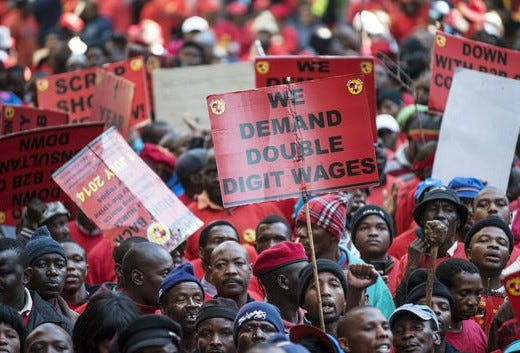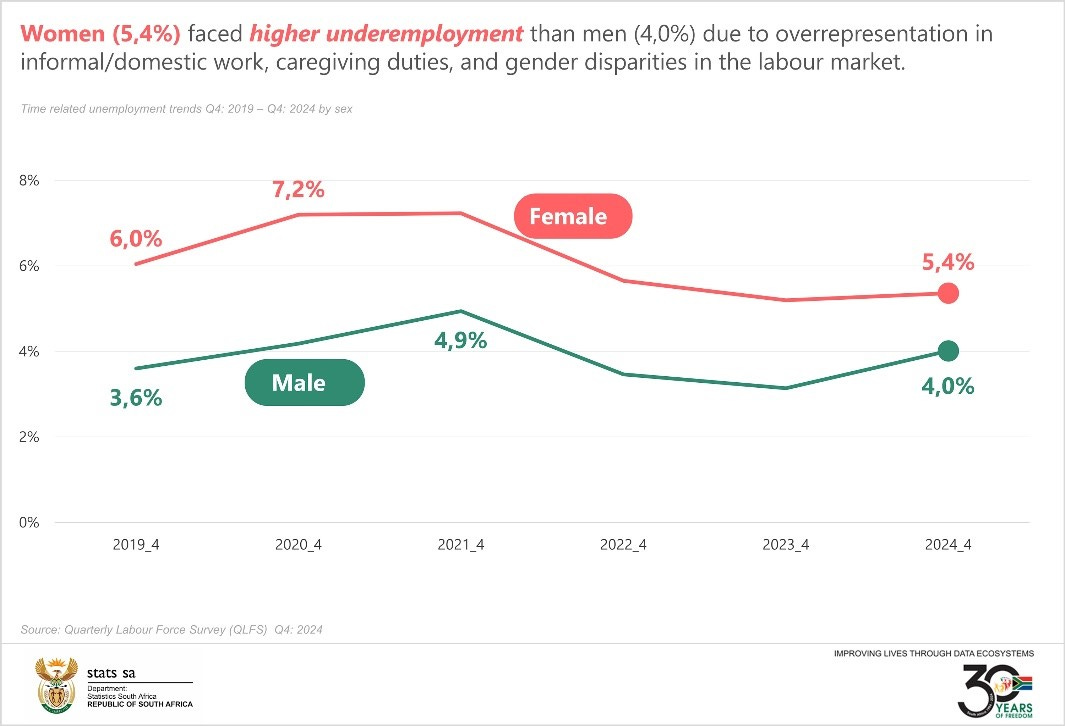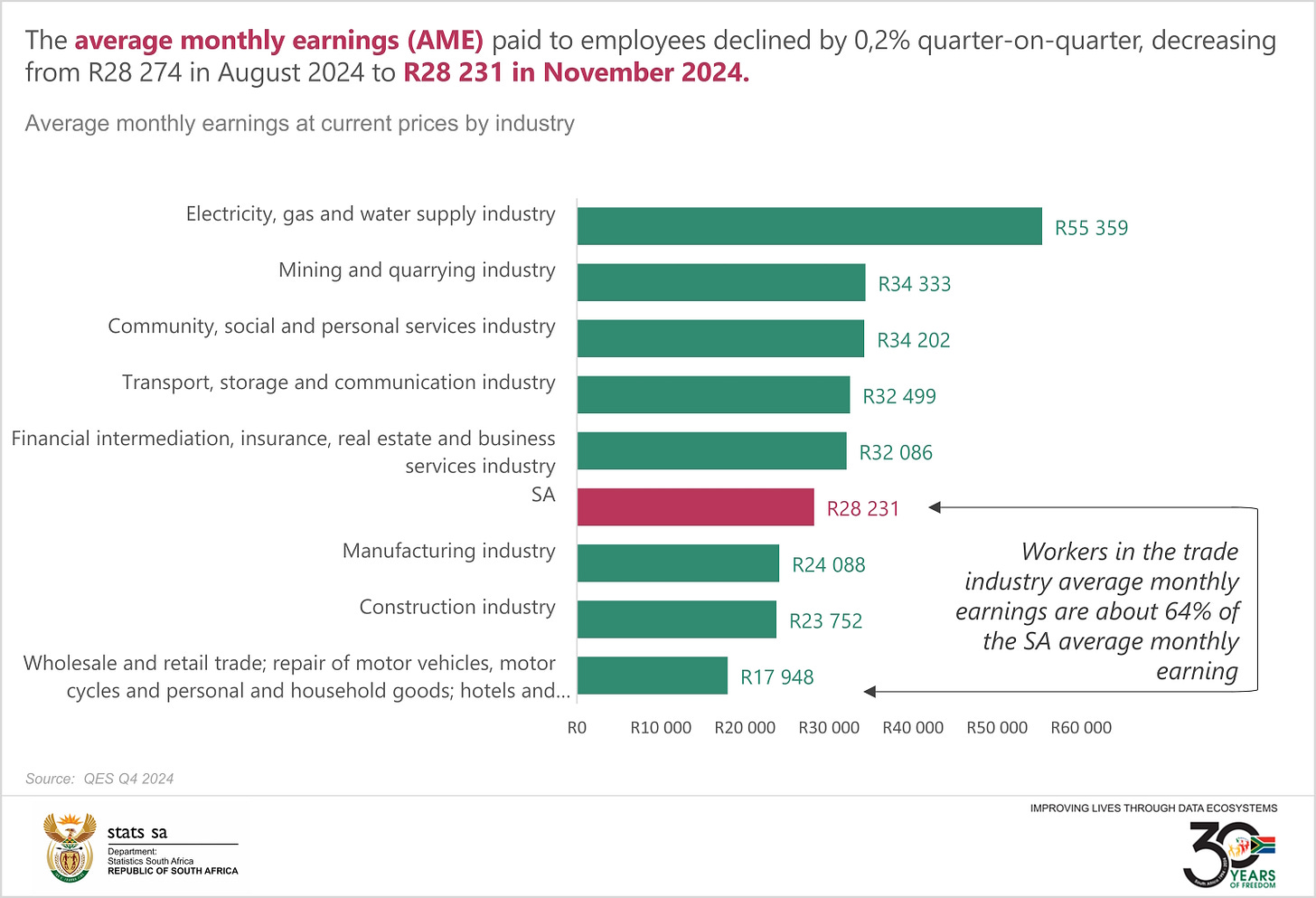The Forgotten Workers: South Africa’s Labour Crisis Beyond the Rhetoric
Working but Broke: The Silent Struggle of South Africa’s Underpaid Workforce
As South Africa commemorated Workers’ Day on 1 May, the usual fanfare of political speeches and union rallies filled the air. Yet behind the slogans of solidarity and promises of worker empowerment, a far grimmer reality persists—one conspicuously absent from most platforms. Thirty-one years into democracy, the state of South Africa’s workers is not improving; it is deteriorating.
A Dual Crisis: Unemployment and the Underemployment Trap
The harsh truth is that unemployment remains a national crisis, with StatsSA’s latest figures putting the official jobless rate at 31.9% in Q4 2024. But even for those employed, the struggle is far from over. Time-related underemployment—measuring workers who cannot secure sufficient hours—stands at 4.6%, trapping nearly 788,000 South Africans in jobs that fail to provide a livable income.
The Silent Crisis of Underemployment
While politicians and union leaders fixate on headline unemployment figures, the plight of the underemployed is routinely ignored, and the burden is disproportionately borne by women. These workers, though technically employed, survive on inadequate hours and wages. The five-year trend reveals a disturbing pattern:
Pre-pandemic (2019): Underemployment at 4.7%
COVID-19 peak (2020–2021): Rose to 5.9% as businesses slashed hours
Post-pandemic (2023): Dropped to 4.1%, offering false hope
2024: Back up to 4.6%, signaling stagnation
This fluctuation suggests a fragile labour market where workers aren’t just battling joblessness but also fighting for decent, full-time work.
Populism Over Progress: Leadership’s Failure to Act
Rather than confront these realities, many Workers’ Day speakers opted for populist rhetoric, sidestepping uncomfortable truths about policy failures, economic stagnation, and systemic corruption. The 2025 SONA acknowledged unemployment as critical, yet concrete solutions remain absent. South Africa’s labour market is caught in a vicious cycle:
Economic stagnation stifles job creation.
Rigid labour laws discourage hiring.
Skills mismatches leave workers unprepared for available jobs.
Corruption erodes worker protections.
The Crushing Weight of Declining Wages Amid Soaring Costs
While job scarcity dominates headlines, a quieter crisis is eroding livelihoods: shrinking wages against skyrocketing living costs. Even employed workers struggle as inflation outpaces salary growth, pushing households into financial distress.
Wages vs. Inflation: A Losing Battle
StatsSA data shows nominal wage increases are eclipsed by rising costs:
Food inflation keeps staples like bread and maize meal unaffordable.
Fuel hikes inflate transport and goods prices.
Electricity tariffs burden strained budgets.
Healthcare costs devour incomes, with medical aid and out-of-pocket fees spiraling.
The Rise of the Working Poor
The result? A growing class of “working poor”—employed but unable to afford basics. Many resort to debt, austerity, or multiple jobs. Casual and gig workers face even harsher conditions, with volatile pay and no protections.
A Broken Social Contract
Democracy promised not just jobs but dignified work, ensuring a decent life. Three decades later, this promise is broken. While leaders debate and unions posture, workers endure financial suffocation.
Solutions Beyond Empty Promises
1. Inflation-linked wages: Adjust minimum wages to real living costs.
2. Price controls: Temporary subsidies on essentials like bread and fuel.
3. Public service relief: Subsidize transport and energy to curb knock-on effects.
4. Healthcare reform: Strengthen public systems and regulate private costs.
Conclusion: Workers Can’t Wait
South Africa’s workers aren’t just fighting for jobs—they’re fighting for survival. Declining wages and relentless inflation are pushing families to the brink. This Workers’ Day should have been a wake-up call; instead, it was another missed opportunity.
The question is no longer if things will improve, but how much worse they must get before leaders act. The time for action is now—workers cannot wait any longer.





